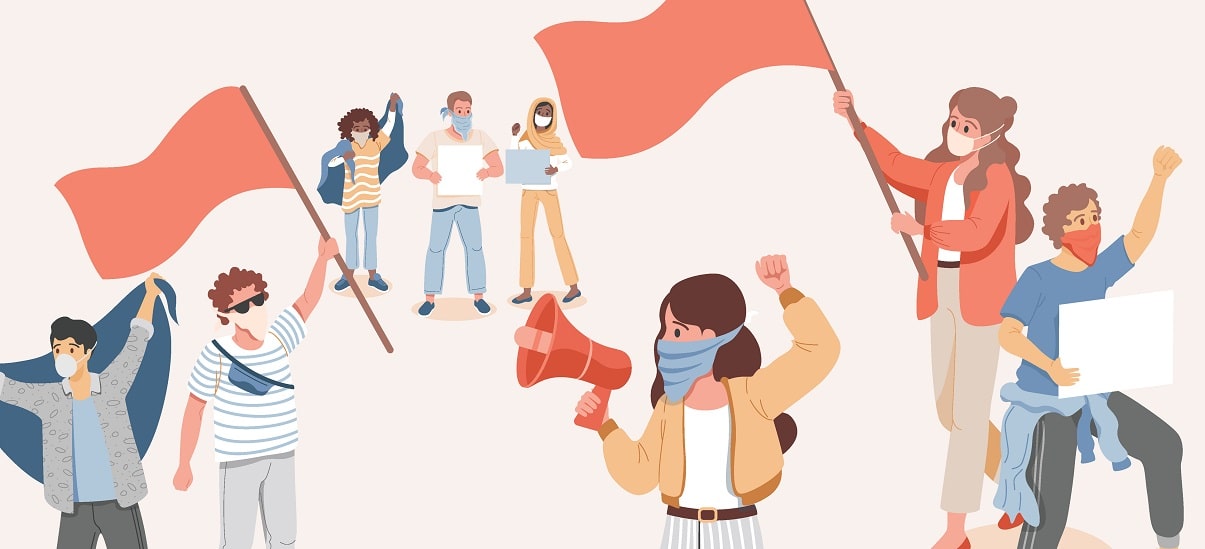discrimination for supporting social movements
Nowadays, freedom of expression is one of the most precious rights, it not only helps us to give our point of view but also to point out the social problems that we have in the country. Social movements are that push and support that are needed to support our causes and express our ideas. However, in Peru when the masses want to raise their voices, many want to silence them.
A clear example of this discrimination is that suffered by the feminist movement. Feminism consists of an active struggle for the vindication of women and the obtaining of equal opportunities and benefits with men and the elimination of discrimination and mistreatment towards women by the patriarchal systems that exist in many nations of the world.However, in society this movement is viewed with contempt as they ignore its goal and think that their ideology is based on hatred of man. That is why people who support this movement, suffer insults, labels and discrimination, more in the social aspect, simply for expressing and defending a good cause.
The LGBT movement is the social movement that fights against discrimination and in favor of the normalization and recognition of the rights of lesbian, gay, bisexual, transgender and transsexual people.
On several occasions it has also been seen that people do not agree with the aforementioned movement, which causes ridicule, aggression, harassment on social networks, etc.
Said ridicule affects the people who are part of the movement, since they are only going to express the normalization and respect that they deserve, that there is no rule for love, that they find equality in society, since they are mostly makes it difficult for them to find their space in the environment because of such teasing.
In conclusion, both movements seek to express their feelings, seek equality and most importantly, respect.
Obviously there are limits, the movements mentioned above do not seek to attack the rest, they do not seek to cause disturbances, what they seek is respect and equality for all and all people. It doesn't matter what you believe, it doesn't matter what you like or what you are, what matters is that we are people and we deserve the same rights, the same treatment and the same opportunities.
References:
García, C. (2020, 18 febrero). ¿Qué es el feminismo y quiénes son las feministas? El Universal.
https://www.eluniversal.com.mx/metropoli/cdmx/que-es-el-feminismo-y-quienes-son-las-feministas
R. (2022, 16 mayo). Prefiero una mujer oprimida; es discriminada por ser feminista. La Silla Rota.
Human rights watch. ( 2009, 11 de junio). Movimiento por los derechos de LGBT: Progreso y visibilidad generan reacciones violentas.



Comentarios
Publicar un comentario